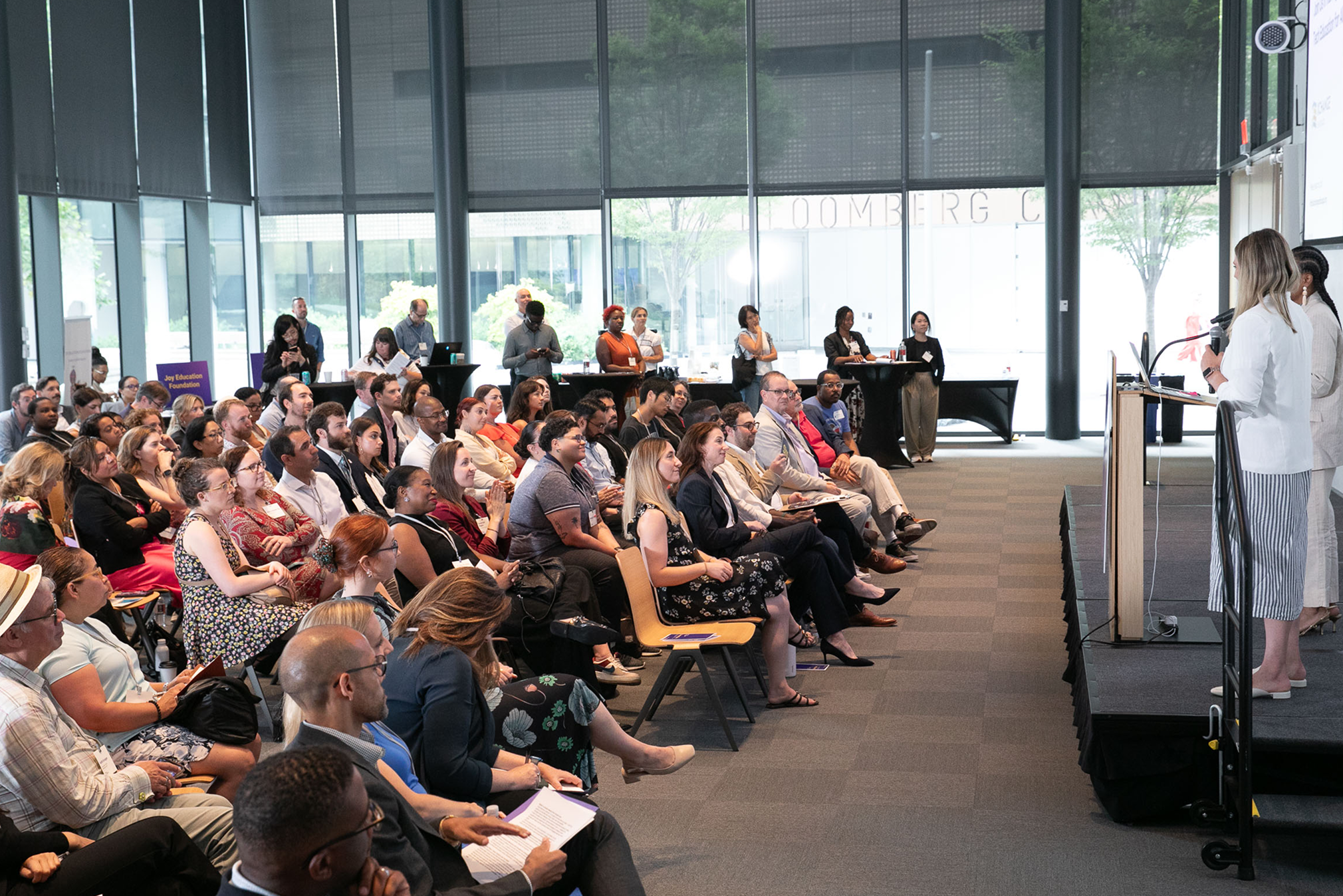The Learning Landscapes Challenge announced two grand-prize winners at a Demo Day event in New York.
According to recent polling from Gallup, only 23% of students felt that their schools were doing an excellent job responding to their unique learning needs. Another Gallup poll, conducted in collaboration with the Walton Family Foundation, found that while nearly eight in 10 Gen Zers agree they have a great future ahead of them, only half agree that they feel prepared for that future.
These were just some of the insights discussed during a fireside chat exploring how Gen Z’s experiences can shape how leaders imagine — and build — future learning environments to meet student needs and aspirations. The panel was part of the Learning Landscapes Challenge Demo Day, a live event at Cornell Tech’s Verizon Executive Education Center marking the conclusion of the $2.2 million competition, sponsored by Siegel Family Endowment and the Walton Family Foundation. The event convened more than 100 education funders, innovators, policymakers, and advocates to watch five Phase 3 teams present their multidimensional learning solutions and celebrate the challenge’s two grand-prize winners, announced live at the conclusion of the program.
Innovative tools and new approaches are abundant, yet achievement gaps persist, chronic absenteeism continues, and too many students are disconnected from resources they need. For a student experiencing homelessness, navigating between shelter placements and school systems, these innovations are often inaccessible or out of reach. For students with limited career pathway visibility, innovative learning models are irrelevant without local context and community connections. Frequently, what’s missing is the connective tissue — the multidimensional infrastructure that can bridge physical spaces, digital systems, and social relationships to create coherent learning ecosystems. When changemakers design learning infrastructure with the most vulnerable students in mind, they create stronger systems for everyone.
The Learning Landscapes Challenge congratulates the grand-prize winners, who will each receive $500,000 to help them implement and scale their solutions:
- New Visions for Public Schools. This system for coordinating student data and wraparound services aims to decrease absenteeism and improve academic and life outcomes for youth living in New York City shelters. By integrating parent-school communication, AI-driven student needs monitoring, and check-ins with trusted adults, New Visions for Public Schools, in collaboration with New York City Public Schools and other city agencies, is developing a holistic support model to drive student success.
- Xchange Chicago, Inc. This experiential learning model is bridging the gap between classroom education and tech careers by providing opportunities for students to acquire essential industry skills. By integrating an in-person innovation hub on the Comer Education Campus with an IT delivery center that provides local apprenticeships, Xchange Chicago is leveraging tailored project- and work-based learning experiences to create accessible pathways into rewarding tech careers.
Designed and produced by Luminary Labs, the Learning Landscapes Challenge helped amplify the need for multidimensional approaches to infrastructure and provided technical assistance to promising proposals through a multi-phase process. The challenge drew 272 Phase 1 submissions from teams across 44 states and U.S. territories. From that initial cohort, 40 Phase 2 teams received $5,000 each and an invitation to participate in a 14-week virtual accelerator. Five Phase 2 winners then received $200,000 each and entered the Phase 3 incubator, which kicked off with an in-person boot camp in January 2025. Over the six-month incubator, with the support of mentors and customized programming, these teams prototyped their solutions and developed implementation roadmaps.
Through the challenge, a community of judges, mentors, and other supporters provided support and guidance to the teams and helped build a movement of innovators committed to reimagining how infrastructure can serve as the foundation for equitable, effective learning. The grand-prize winners — and all the Phase 3 teams — point toward a shift in how we think about the future of education inside and beyond the classroom.
Photo by Mahyar Dini.

